Learn a few fun facts about mistletoe. How it grows and the history of the well known traditions of hanging some at the entrance of your home.
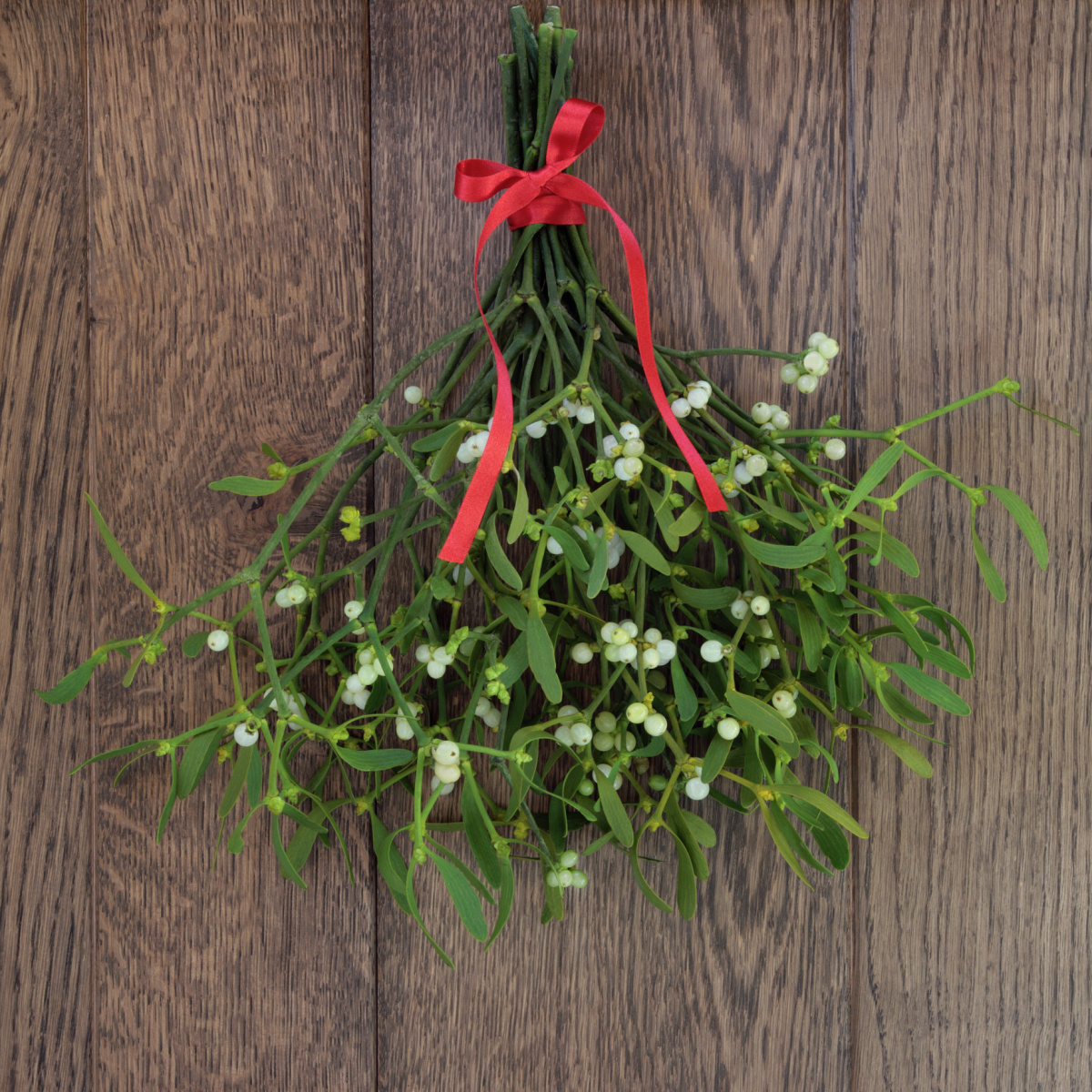
We've all heard of this holiday plant, but how much do you really know about mistletoe?
This post contains some affiliate links (that means if you make a purchase after clicking a link, there’s no additional cost to you, but I will earn a very small commission. ) i.e. as an Amazon Associate, I earn from qualifying purchases. Click here to read my full disclosure policy.
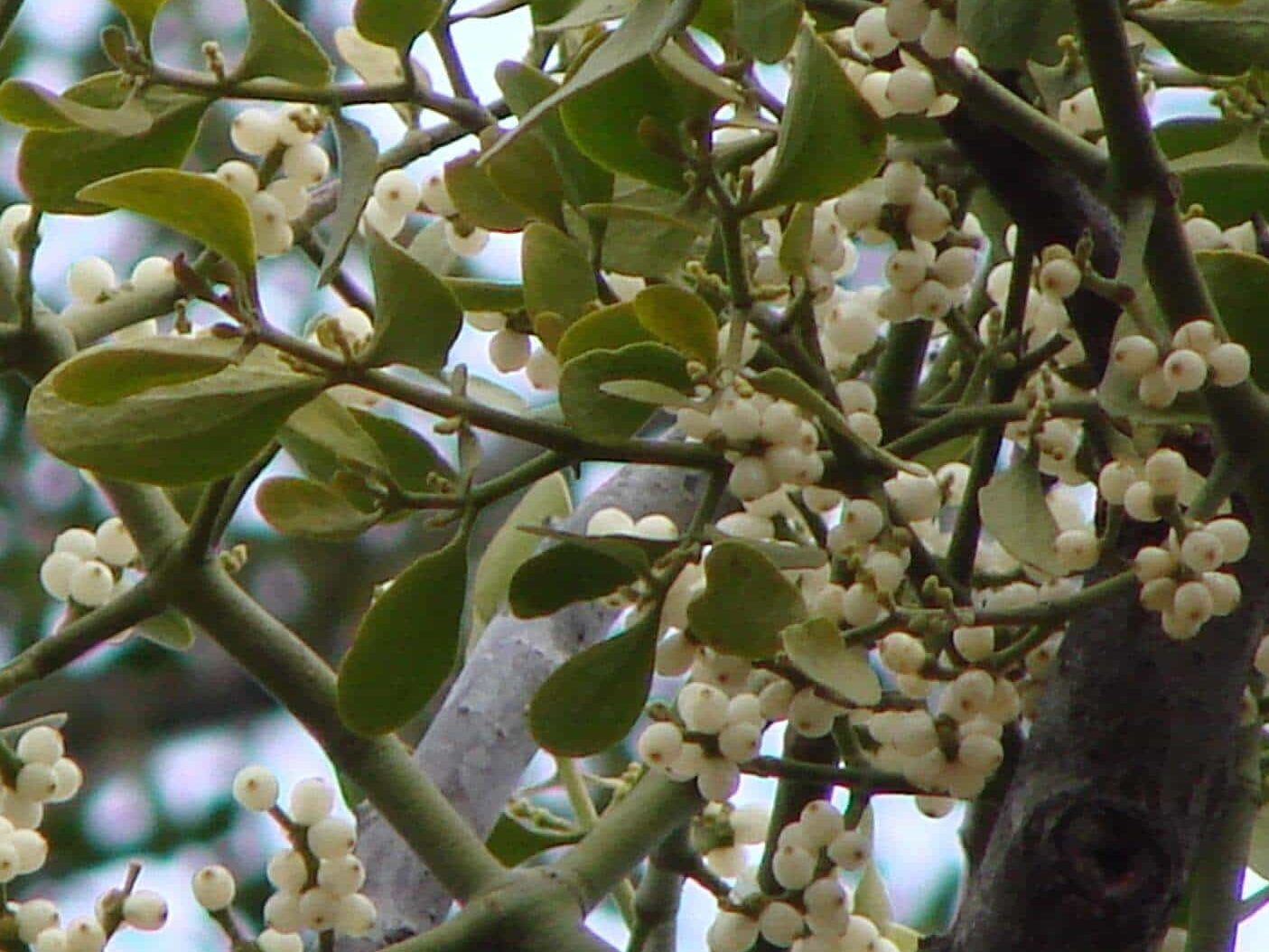
Mistletoe Plant Facts and Folklore
The North American mistletoe or Phoradendron leucarpum is a native plant to the US and Mexico. The delicate beauty, which is known for decorating doorways during the holidays to promote love and affection to all, is actually a parasitic plant. Yes, mistletoe grows by attaching itself to deciduous trees (those who drop their leaves in winter), such as poplar and apple trees. In fact, the scientific name Phoradendron means "thief of the tree" in Greek.
They absorb the water and nutrients from the host tree, and their evergreen leaves provide some nutrients through photosynthesis. They are spread by birds that eat the pretty white berries, which are covered in a sticky substance, and they spit out the seeds or pass them as waste, which sticks to branches and starts a new plant. The picture below shows what mistletoe looks like living in a tree.
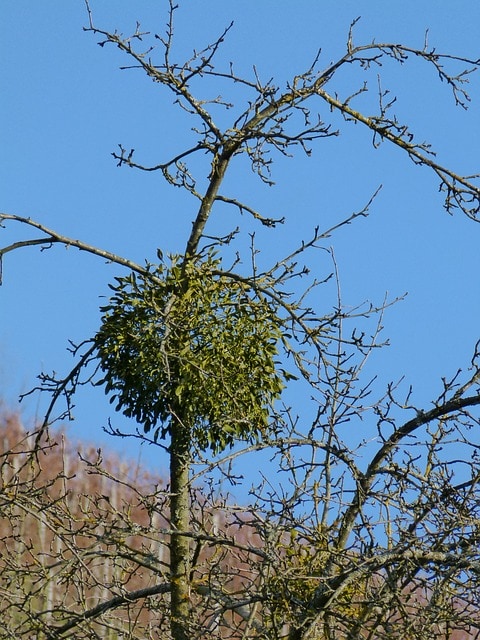
Mistletoe was highly regarded by the Druids. They believed it protected you from evil, witches, and ghosts, so they hung it in doorways. Its fresh evergreen leaves were considered a symbol of fertility.
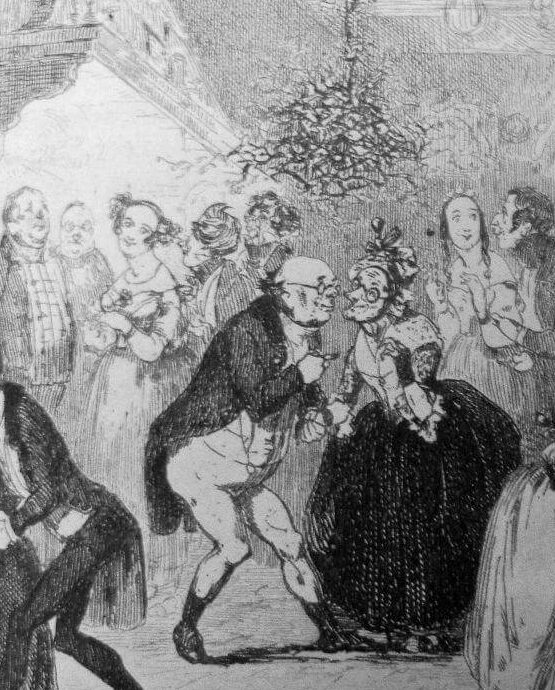
Mistletoe and Kissing
The “kissing legend” has many histories. In Norse mythology, the god Balder was killed with an arrow made from the wood of mistletoe. Balder's mother, Frigg, the goddess of love, cried over the loss of her son. Her tears turned the red berries of the mistletoe to white, and Balder miraculously came back to life. From then on, she blessed the plant and promised a kiss for all who walked beneath it.
Another interesting tidbit about “kissing under the mistletoe” is that there was once a convention for the tradition. The proper etiquette was for the man to pick a berry once he kissed a lady under the mistletoe. Once all of the berries were gone, the kissing was over.
Looking for fresh mistletoe to hang in your house this year? You might find some at your local florist or big box store. If not, you can buy mistletoe online.

More Holiday Folklore
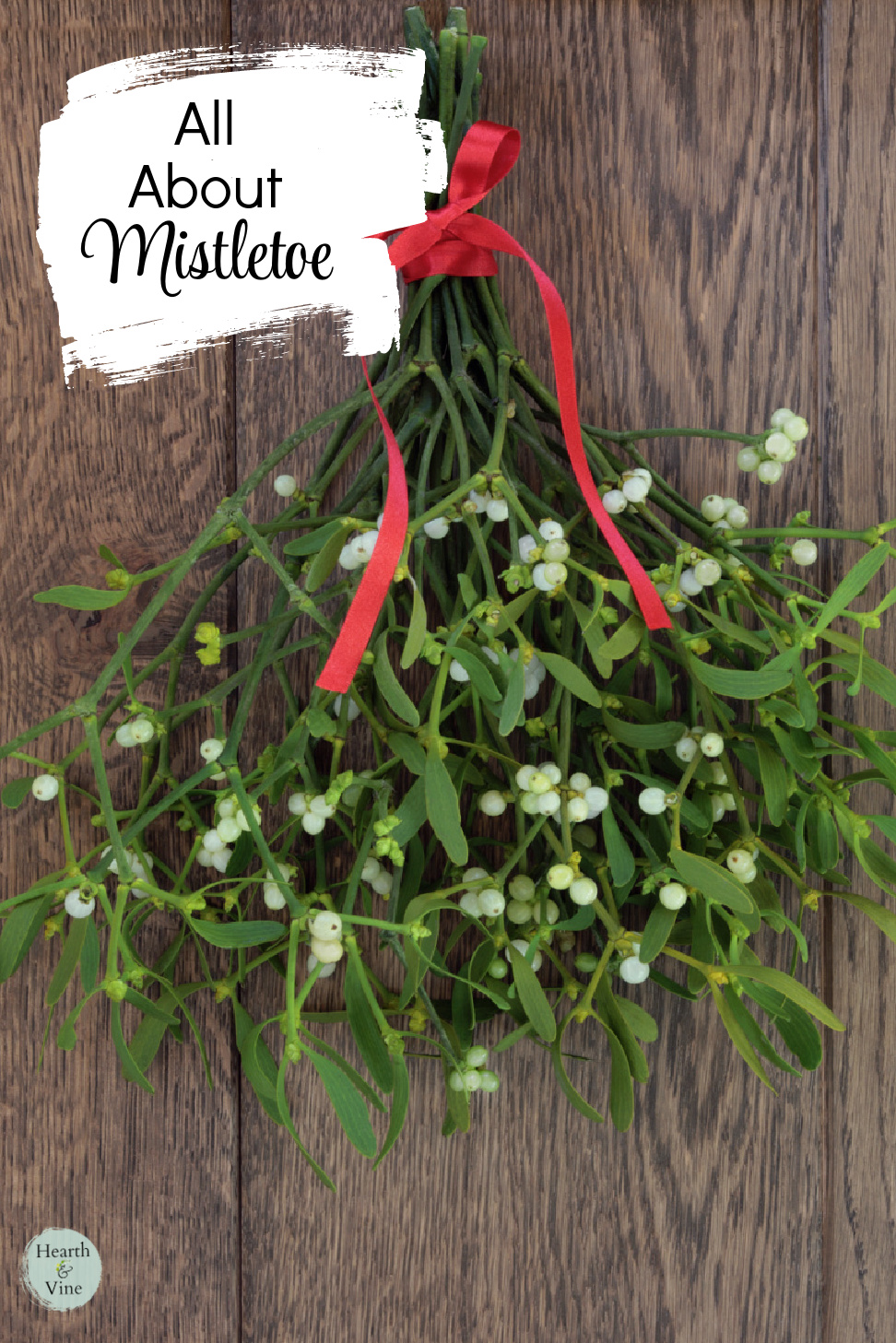



Heather @ new house new home
Always wondered where the tradition started. We can't grow it here in Canada as it's too cold. But I loved to see it when I was in England a few years ago - interesting how it grows. It's really just a weed, isn't it?